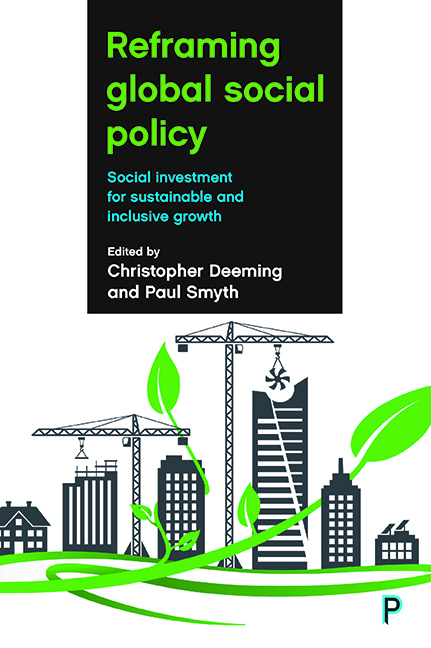Four - The challenges of inclusive growth for the developmental welfare state
Published online by Cambridge University Press: 12 April 2022
Summary
Introduction
The emerging idea of social investment is an important rationale for constructing the welfare state (Deeming and Smyth, 2015). It sees social policy as policy instruments to prepare people for new social risks. Nevertheless, such a perspective is not an entirely new idea. Bismarkian social insurance was introduced in order to serve the needs of industrial workers in Prussia. In the modern era, some East Asian countries have designed social policy programmes and institutions in such a way that they facilitate economic growth. Under such welfare state arrangements, the costs of social policy programmes were kept minimal so that financial resources could be diverted to the investment projects directly serving economic growth. The arrangements also discouraged people from being dependent on state welfare and encouraged them to rely more on support from families, firms and community (Goodman and White, 1998). The welfare state gave priority to the social protection of those who were considered as strategic for industrialisation. The notion of the ‘developmental welfare state’ captures well such an institutional arrangement of social policy programmes (Kwon, 2005). From the perspective of social investment, the developmental welfare state is a policy regime that places emphasis on the strategic allocation of social protection resources at the macro level, while the recent view of social investment emphasises investment in people at the individual level (see the EU definition for instance, Box 1.1, Chapter One).
In contrast to the idea of social investment, inclusive growth provides a different perspective to welfare state construction. It places much emphasis on inclusion and equity in the process of economic growth and, in terms of social policy therefore, highlights social policy programmes that would bring about equality and inclusion such as social assistance for the poor and the marginalised groups. In the wake of growing inequality in many industrialised countries, inclusive growth has emerged as an alternative model of growth and social protection. This chapter poses a question regarding these different perspectives on social welfare: are they mutually exclusive so that we must choose one over the other, or can they complement each other so that we can balance the emphasis of welfare state construction?
- Type
- Chapter
- Information
- Reframing Global Social PolicySocial Investment for Sustainable and Inclusive Growth, pp. 99 - 120Publisher: Bristol University PressPrint publication year: 2017



